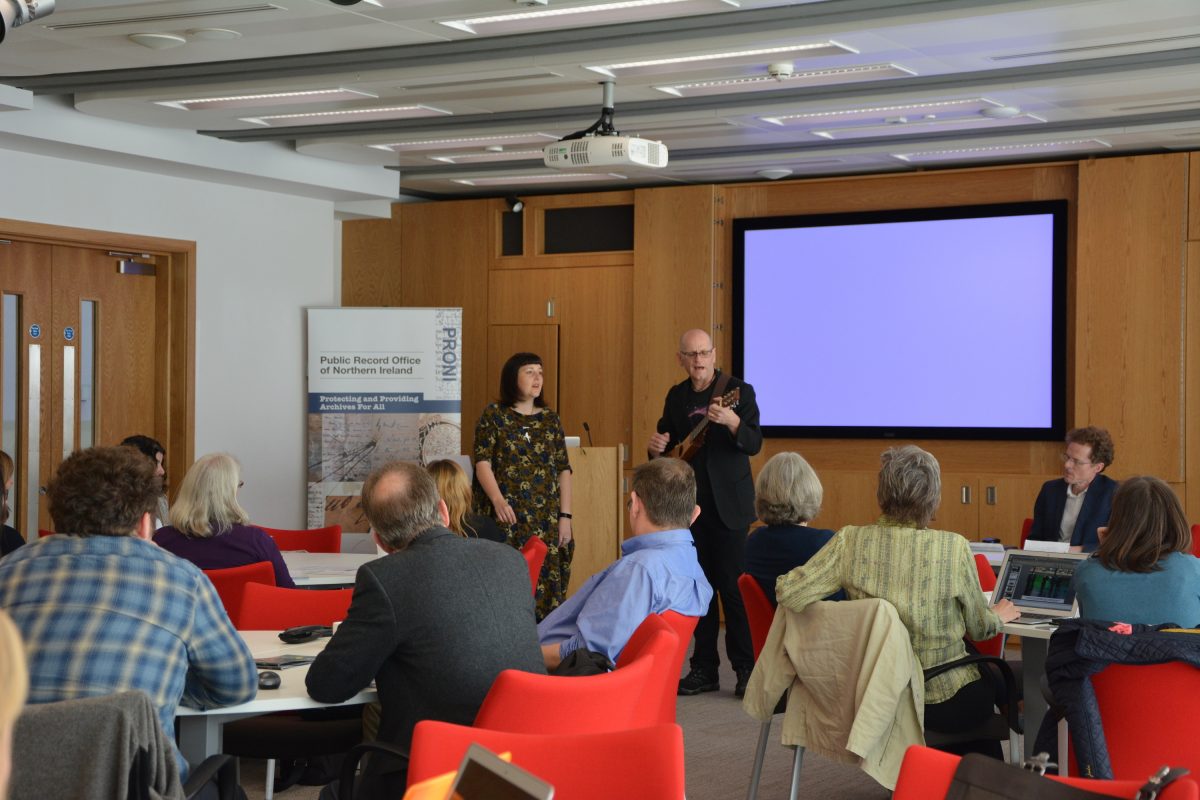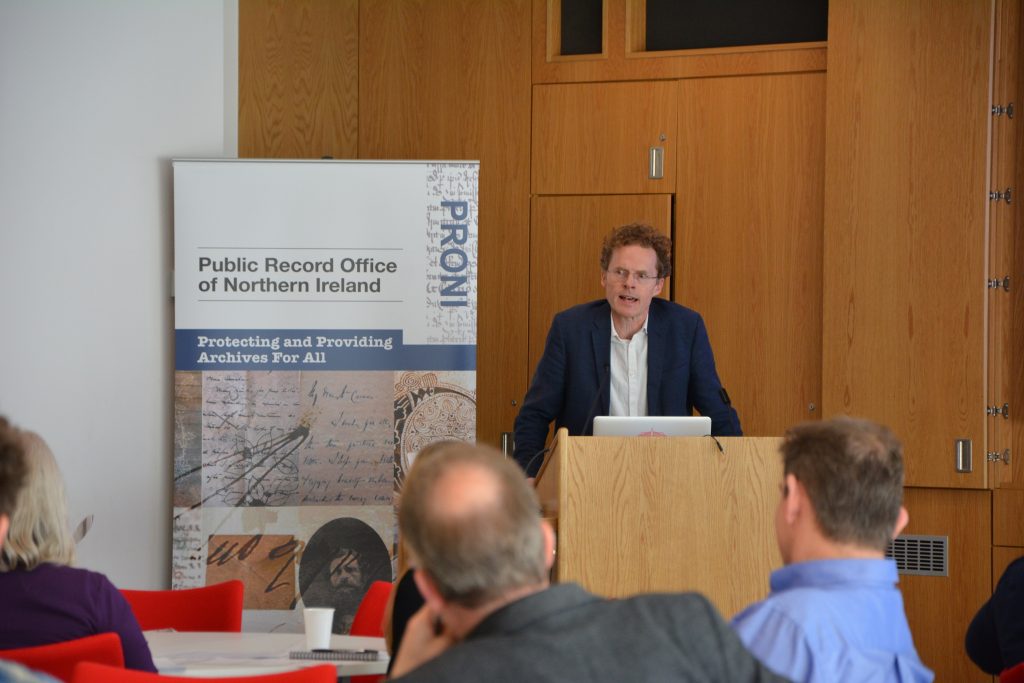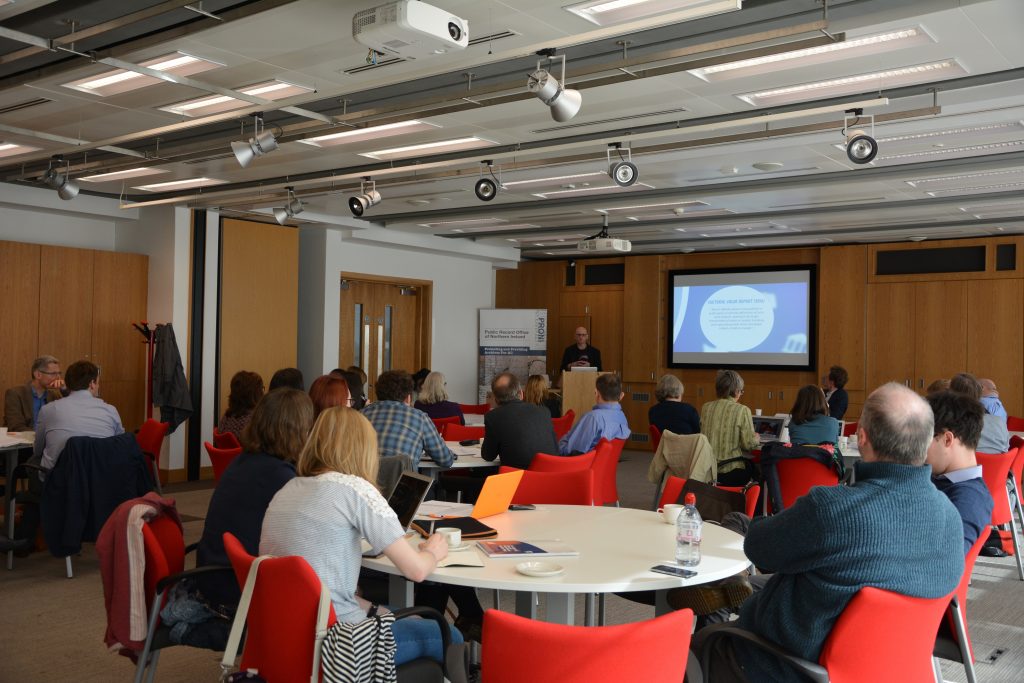Vital North Partnership Manager Rachel Pattinson writes about a recent event at the Public Record Office of Northern Ireland, discussing different approaches to collaborative working

Seven Stories: The National Centre for Children’s Books is a strategic partner to the Northern Bridge Doctoral Training Partnership, funded by the Arts and Humanities Research Council. In May, I joined staff from Newcastle University, Durham University and Queen’s University Belfast,as well as colleagues from Northern Bridge’s strategic partners, for Ecologies of Knowledge, a seminar held at the Public Record Office of Northern Ireland in Belfast.
The seminar was suggested by Sage Gateshead’s Dave Camlin. It gave us the chance to reflect on our time working together on Northern Bridge so far, and “to explore some of the tensions and opportunities inherent in collaborative approaches to the generation of new knowledge.”

Of course, there are tensions; when you bring together any group of academic institutions, or cultural organisations, there is competition – for students, for audiences, for funding. And although learning is at the heart of what both universities and cultural venues do, the processes through which we generate knowledge are quite different. We speak different languages. We have different drivers. Working in collaboration requires negotiating all of these factors.
Another tension which formed a focus of conversation during the day was the inequality of engagement with the arts. The Warwick Commission’s Enriching Britain, Culture, Creative and Growth Report states that “the wealthiest, better educated and least ethnically diverse 8% of the population forms the most culturally active segment of all”. How to reach those beyond that 8% is certainly a challenge.
But democratising culture and knowledge is becoming increasingly important in both the higher education and cultural sectors. The Research Excellence Framework emphasises the impact of research ‘beyond academia’; Arts Council England encourages the organisations they fund to reach more demographically diverse audiences.

From my experience of working on the Vital North Partnership between Newcastle University and Seven Stories, collaboration holds exciting opportunities. Partnership helps to make our activities more interesting and diverse. At the intersections between universities, cultural organisations and communities, we can draw on our collective expertise to create new kinds of shared knowledge. And with increasing pressure on arts budgets, we can pool our resources and become more efficient.
I explored the Vital North Partnership’s unique ecology at the seminar, giving a Pecha Kucha presentation. It was also interesting to reflect on what role Northern Bridge, as a Doctoral Training Partnership, has as part of our shared ecology. I think the ways in which universities and arts organisations collaborate is changing. We are asking different questions, and having new conversations. I work at this boundary – and I’m interested to see where we’re headed next.
For more information about the Northern Bridge Doctoral Training Consortium, visit: http://www.northernbridge.ac.uk/
This post originally featured on Rachel’s blog, to find out more about the Vital North Partnership click here.
